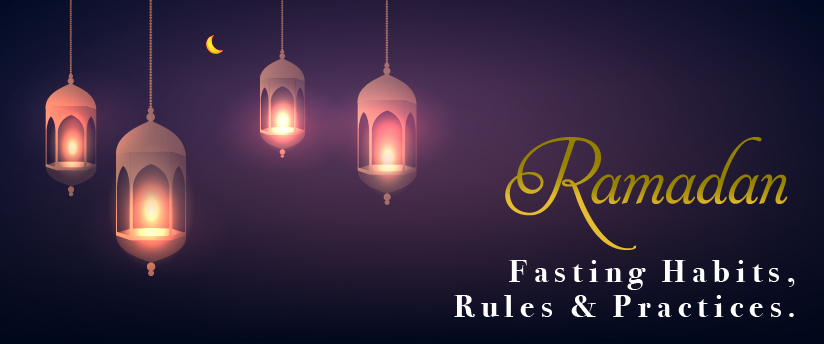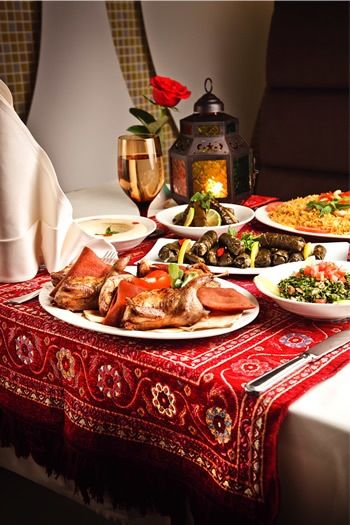Ramadan: Fasting Habits, Rules & Practices

The word ‘Ramadan’ comes from the root of the Arabic word for “parched thirst” and “sun-baked ground.” Ramadan is by definition a time of sacrifice, where Muslims fast during the daylight hours all month, abstaining from all food and drink and other such practices. It’s a time to purify the soul, refocus attention on what’s important, and practice self-discipline.

https://in.pinterest.com/pin/476114991846718077/
With the holy month approaching, it’s the time to reflect on your lives and cultivate healthy habits throughout the rest of the year, and do away with any bad habits.
Ramadan is also a time for increased charitable giving and participating in family and community gatherings to strengthen bonds.
During Ramadan, there are many ways Muslims practice the creation of healthy habits.
Fasting during the holy month can improve one’s health, but only if done in the proper manner. But if done incorrectly, it can cause more harm than good.

https://in.pinterest.com/pin/82472236899571217/
- Choose dates, dried fruits and nuts as part of your diet during Ramadan. These provide healthy nutrients and are packed with energy, thus helping you keep your vitality during this month.
- A healthy Iftar goes hand-in-hand with the traditions: starting with 2 dates, then a glass of water or laban, then starting the meal with a warm bowl of soup, a salad and the main course.
- A balanced main dish at Iftar should contain a source of carbohydrates like rice, pasta, potatoes, as well as some form of protein like beef, chicken or fish, in addition to cooked vegetables. Balance and moderation is the key to health!
- To make your dishes lighter during Ramadan, adopt healthy cooking methods such as grilling, boiling, simmering and roasting and add taste to the food with vegetables, herbs and seasonings.
- For balanced nutrition, try not to rely solely on Iftar to give you all your nutritional requirements. You can have other light meals before bedtime such as low-fat yoghurt and a whole-wheat cheese sandwich, or some dried fruits and nuts.
- If you are a coffee drinker, try and reduce your coffee consumption two weeks prior to the Holy month of Ramadan in order to avoid headaches and sleepiness.
If you are observing the fast of Ramadan, you are recommended to practice the following:

https://in.pinterest.com/pin/668010557199697603/
- Have suhuur, which refers to the pre-dawn meal, and try to have it just before the dawn
- Another recommendation for the Ramadan is that one must increase his recitation, loud or mental of the study of the Quran
- It is recommended that one uses Miswaak, which refers to a piece of the root of tree Araak found in Hijaaz region in Arabian Peninsula, for cleaning the teeth.
Ending it with must-know Ramadan fasting rules & facts:

https://in.pinterest.com/pin/524950900298834160/
- If you are healthy and have reached puberty, you must hold the Ramadan fast
- If you are travelling at the time of Ramadan or are sick, you should not observe the fast. However, it needs to be made up at a later date
- If you are a woman and are menstruating or experiencing post-childbirth bleeding, you should not fast for those days. You must compensate them at a later date
- If you are old or sick and cannot fast, you must perform fidiya, that is, feeding a person for each day of missing the fast
- The women who are pregnant or are breastfeeding and fear that observing Ramadan may weaken them or their child have an option of not observing the fast. However, after Ramadan ends, they must either fast or pay fidiya for each day of having missed the Ramadan.
Ramadan fasting is not solely physical, but involves emotional and spiritual aspects as well.
Even if you aren’t observing Ramadan yourself, the month of Ramadan might be a good time to think about those less fortunate and have gratitude for the blessings you have in your life.
